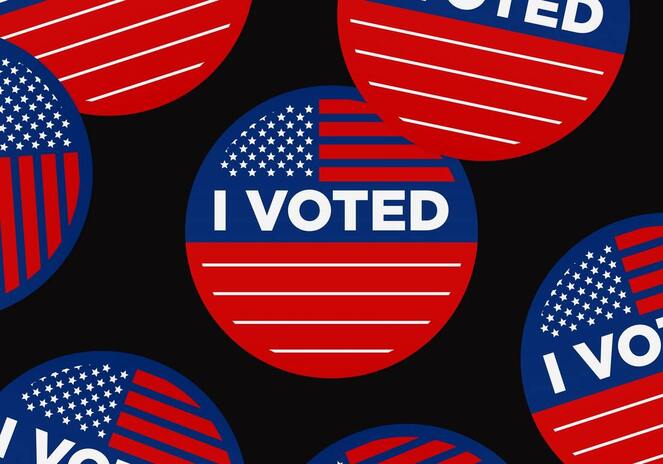|
By: Freda Li On November 3rd, 2020, millions of people around the world tuned into the news and on social media to discuss the results of the U.S. Presidential election between Republican incumbent Donald J. Trump, and Democratic former Vice-President Joe Biden. Counting the results, especially within the circumstances of the COVID-19 pandemic, was a slow and gruelling process; but at the end, Joe Biden emerged as the winner, becoming the 46th President-Elect of the United States.
But this was not an easy victory for Biden, as many confident polls and news outlets projected it to be. Biden won 51.1% of the popular vote, to Trump’s 47.2%; and electoral votes in Arizona and Georgia went to Biden by the slimmest possible margins. No matter what your political affiliation, it is clear to anyone that the American political climate is deeply divided and intensely polarized. However, what has contributed to this hyper-partisanship? There are significant insights to be made in political neuroscience and psychology. The polar ends of the political spectrum connect most fundamentally to two concepts of freedom. The first is a negative concept of freedom, in which business and enterprise are free from any type of state interference. In this concept, freedom creates the conditions for wealth and economic stimulation, as well as the reduction of poverty and inequality. The second is a positive concept of freedom, in which government intervenes to defend human rights, social justice, and equality, often in the form of redistributive income and tax policies. In this concept, equality creates the conditions for freedom. You can probably observe that the first concept falls under the conservative platform and the second concept under the liberal platform. There are all sorts of political issues that fall under conservative and liberal guidelines, but many political contentions (e.g. public vs. private healthcare) can be attached to this fundamental idea of freedom. One significant difference between conservatives and liberals is in their moral foundations. There is no lack of morality on either side; rather, there are simply different moral priorities. Research published in the 2009 Journal of Personality and Social Psychology observed how moral judgment varied across the political spectrum, by measuring five sets of moral intuitions from Moral Foundations Theory (MFT): harm/care, fairness/reciprocity, ingroup/loyalty, authority/respect, and purity/sanctity. Conservatives used all five foundations equally, whereas liberals were more heavily concerned with the harm/care and fairness/reciprocity foundations than the other three foundations. Research published in 2020 by Psychological Science used body-sensation maps (which assess the strength of emotional response, based on increased or decreased bodily activity in certain regions) to analyze the reactions of conservative and liberal participants to immoral situations. These situations corresponded to the same five domains of MFT. The maps produced at the end of the research were able to accurately classify participants who were highly liberal or highly conservative. Both works demonstrate foundational differences in moral intuition between conservatives and liberals, which may help elucidate components of their respective ideologies. Conservatives and liberals disagree on many fundamental issues, which would naturally create some friction. But what has contributed to this current climate of political tension, in which conservatives and liberals are hardly able to discuss their differences without hostility? There are more psychological factors that contribute to staunch partisan loyalty. Psychologists at New York University posited that partisanship plays a role in identity, which is why political affiliation can become so foundational to a core sense of self. Identities are created from individual and group identities, and political identities support multiple social goals: they provide community and predictability, and they endorse fundamental moral values. As such, it is rewarding to retreat into a partisan group identity, in order to feel socially secure in identity and community. Furthermore, increased social media use may contribute to polarization, as it may propagate the spread of hyper-partisan content and misinformation. Media outlets biased in favour of one political orientation present news under the guise of impartiality, and thereby confound the difference between opinion and fact. Online discussions typically occur in “echo chambers”, forums in which content is shared among people with the same political alignments: this provides consistent support and reinforcement of partisan values, without the counterarguments necessary to truly challenge it. Additionally, social media significantly increases exposure to moral and emotional rhetoric that further degrades understanding between political parties. As political discussion becomes increasingly polarized, it is essential that we understand in what ways we are different, so that we may discuss and learn from those differences without bias or antagonism. Political psychology demonstrates the rational explanation behind our seemingly irreconcilable differences, and may ultimately provide the groundwork on which we learn to better understand ourselves and one another. References 2020 Balance of Power. wusa9.com. (2020). https://www.wusa9.com/elections-2020-map. Atari, M., Davani, A. M., & Dehghani, M. (2020, January 22). Liberals and Conservatives May Feel Moral Violations Differently. Association for Psychological Science - APS. https://www.psychologicalscience.org/publications/observer/obsonline/liberals-and-conservatives-may-feel-moral-violations-differently.html. Denworth, L. (2020, October 26). Conservative and Liberal Brains Might Have Some Real Differences. https://www.scientificamerican.com/article/conservative-and-liberal-brains-might-have-some-real-differences/. Graham, J., Haidt, J., & Nosek, B. A. (2009). Liberals and conservatives rely on different sets of moral foundations. Journal of personality and social psychology. https://pubmed.ncbi.nlm.nih.gov/19379034/. Haase, V. G., & Starling-Alves, I. (2017). In search of the moral-psychological and neuroevolutionary basis of political partisanship. Dementia & neuropsychologia. https://www.ncbi.nlm.nih.gov/pmc/articles/PMC5619210/. Van Bavel, J. J., & Pereira, A. (2018). Trends in Cognitive Sciences, 22(3), 213–224. https://doi.org/https://doi.org/10.1016/j.tics.2018.01.004
0 Comments
Your comment will be posted after it is approved.
Leave a Reply. |
Categories |


 RSS Feed
RSS Feed